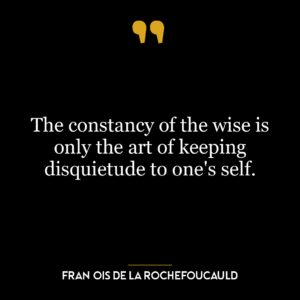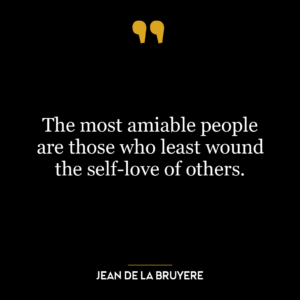This quote suggests that humans inherently possess a dual nature, particularly when it comes to love. On one hand, there’s the capacity to love others, which is often regarded as a selfless act. On the other hand, there’s self-love, which is typically seen as a form of self-interest or even narcissism. The quote implies that these two types of love aren’t mutually exclusive but rather intertwined. In other words, to truly love others, one must first love oneself.
The concept of self-love here refers not to vanity or selfishness, but to a healthy sense of self-worth and self-respect. It’s about acknowledging and accepting oneself, with all the strengths and flaws. Only when a person can love and accept themselves, can they genuinely love and accept others. This is because our relationship with ourselves sets the tone for our relationships with others. If we’re harsh and critical towards ourselves, we’re likely to be the same towards others. Conversely, if we’re kind and understanding towards ourselves, we can extend the same kindness and understanding to others.
In today’s world, this idea is especially relevant. In our fast-paced, highly competitive society, many people struggle with self-esteem and self-worth. Social media, for instance, often fuels comparison and self-doubt, making it hard for people to love and accept themselves. This can in turn affect their capacity to form healthy, loving relationships with others.
In terms of personal development, this quote underscores the importance of cultivating self-love. It suggests that self-love isn’t just beneficial for our mental and emotional well-being, but also crucial for our ability to form meaningful connections with others. It encourages us to embrace our imperfections, to be patient with ourselves, and to treat ourselves with kindness and respect. Only then can we truly love others, not out of need or insecurity, but out of a genuine sense of connection and empathy.









